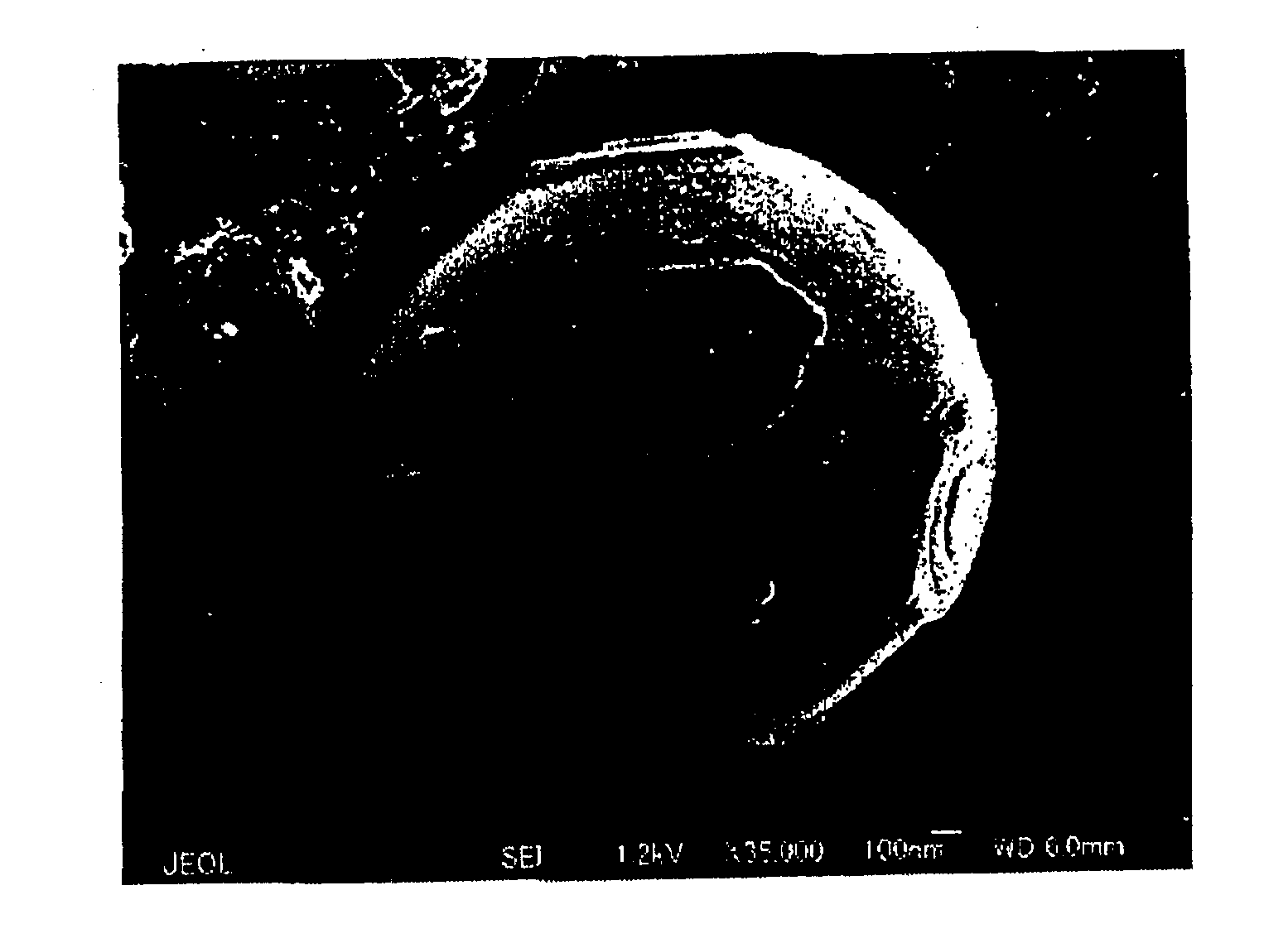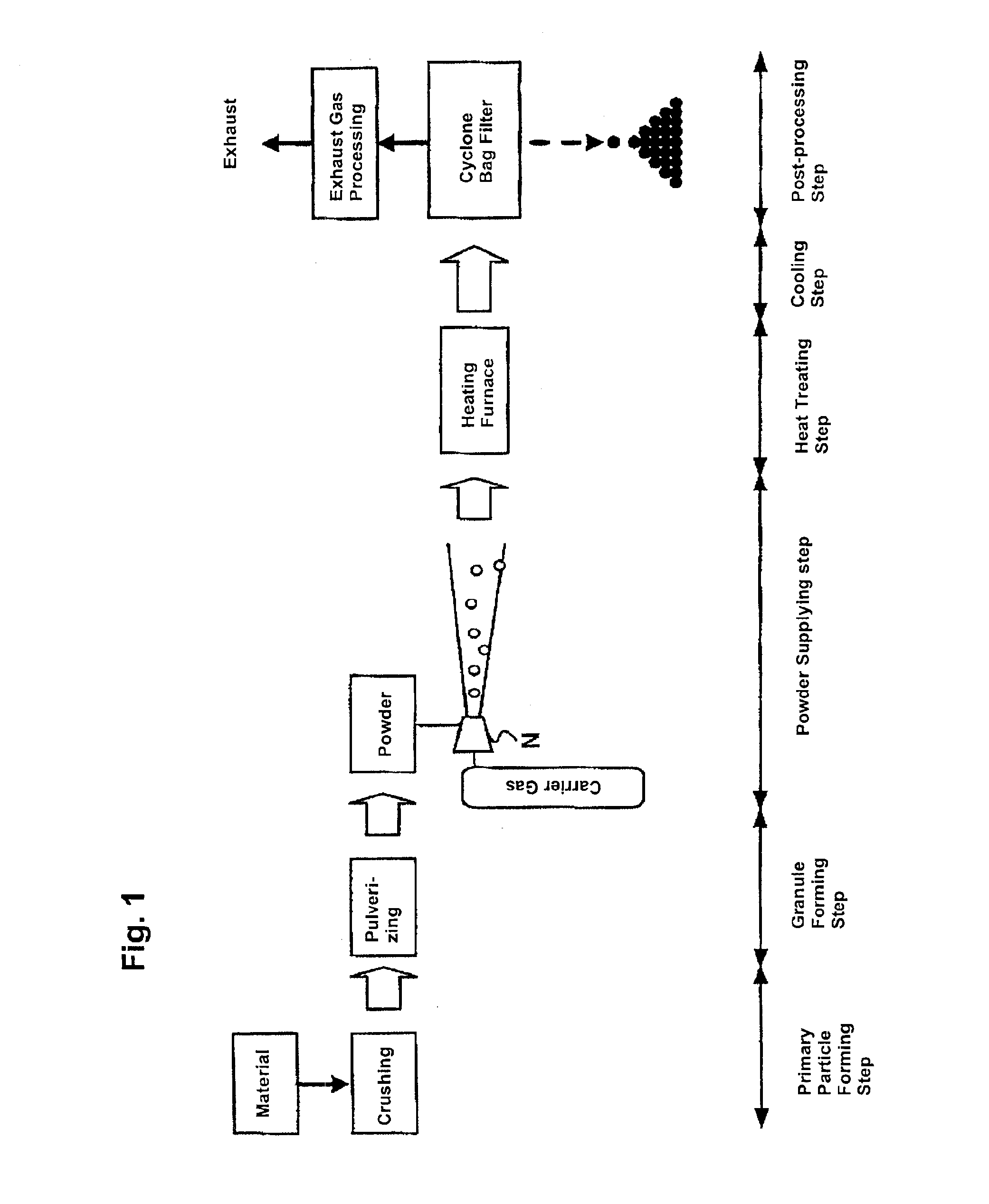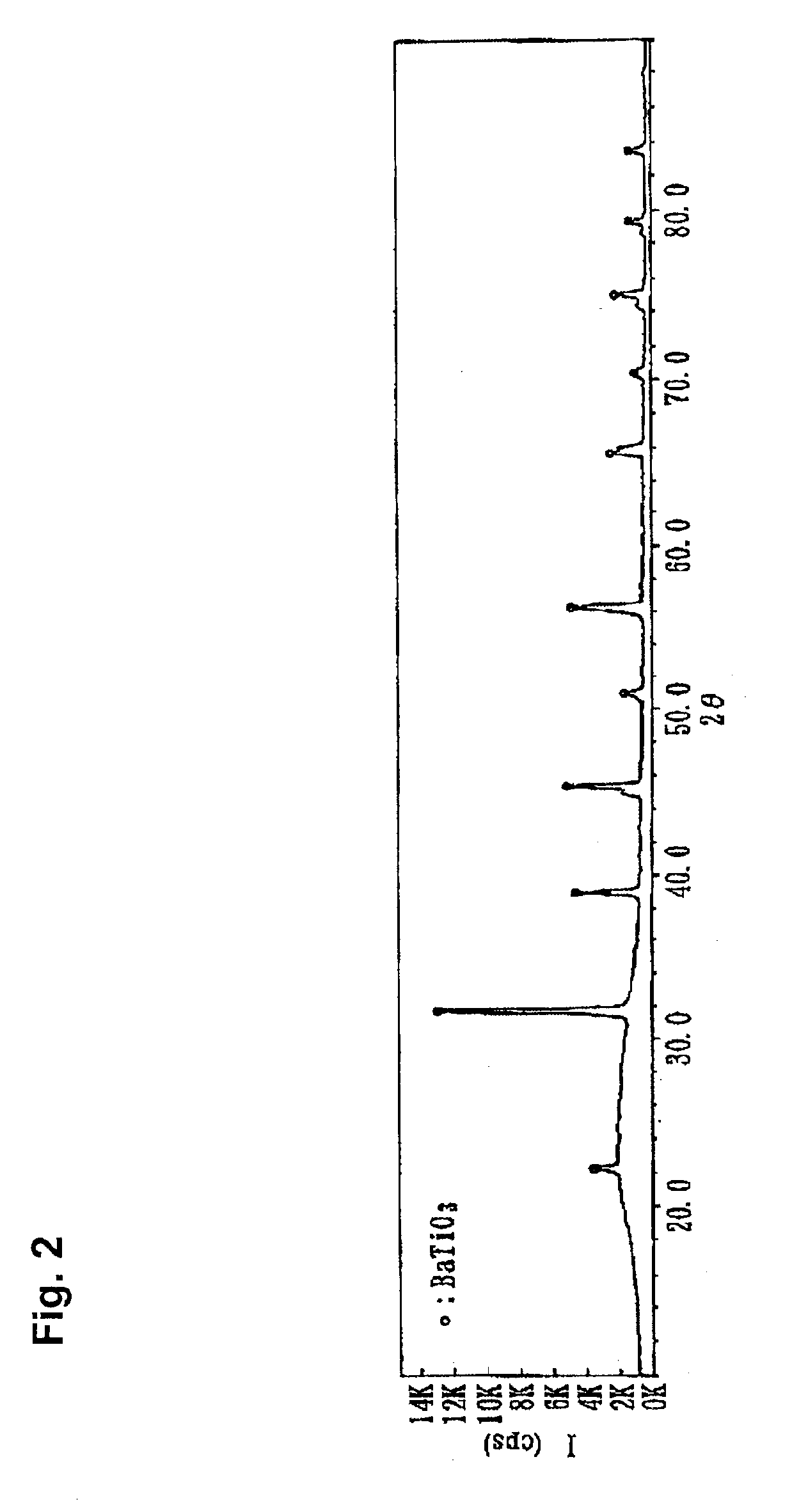Method for manufacturing single crystal ceramic powder, and single crystal ceramic powder, composite material, and electronic element
a technology of ceramic powder and single crystal, which is applied in the direction of magnetic materials, alkali metal oxides/hydroxides, fixed capacitors, etc., can solve the problems of localized abnormal growth or uneven composition, difficult to manufacture ceramic powder with superior characteristics, and invite deterioration of magnetic characteristics or electrical characteristics, etc., to achieve excellent spherical properties, high degree of spherical properties, and small particle size
- Summary
- Abstract
- Description
- Claims
- Application Information
AI Technical Summary
Benefits of technology
Problems solved by technology
Method used
Image
Examples
embodiment example 1
Slurry was made by mixing barium oxide (BaO) and titanium oxide (TiO2) powder at a weight ratio of 1:1 to form powder, adding water and mixing the powder for 12 hours in a ball mill (hereafter referred to as No. 1 slurry). Prior to the mixing, however, a dispersant (A-30SL manufactured by Toa Gosei Co.) was added at a weight percentage of 1% to the powder.
No. 1 slurry was dried and granulized with a spray-type drier. While there are no special restrictions for the spray and drying conditions, it is recommended that conditions be set so that the particle size of the granular powder be less than 200 μm.
By firing the granular powder so obtained for one hour at 1,250° C., barium titanate was obtained as a sintered composite oxide. After water and dispersant (A-30SL manufactured by Toa Gosei Co.) were added to the sintered oxide at a weight percentage of 1%, the mixture was pulverized in a ball mill for 48 hours to create a slurry (No. 2 slurry) that includes powder with primary particle...
embodiment example 2
Ceramic powder was obtained in a manner similar to Embodiment Example 1, except for the fact that the molar ratio of barium oxide powder (BaO), titanium oxide (TiO2) powder, neodymium oxide (Nd2O3) powder and manganese oxide (MnO) powder was at 13.8:54.7:31.4:0.1.
The mean particle size of the particles consisting of the powder thus obtained was 2.5 μm, and the shape of the fine particles were extremely close to a perfect sphere. Also, facets of symmetrical crystal faces were observed throughout the entire particle surface, and it was learned that these were single crystal particles free of particle boundary within the particles.
embodiment example 3
Ceramic powder was obtained through a method similar to Embodiment Example 2 except for the fact that granular powder was obtained using the spray method to form granular particles so that the granular powder would come in the smallest shape possible. The mean particle size for the granular powder was 9.1 μm.
Observation of the particles thus obtained verified that the single crystal particles were virtually the same as those obtained in Embodiment Example 2.
PUM
| Property | Measurement | Unit |
|---|---|---|
| Length | aaaaa | aaaaa |
| Length | aaaaa | aaaaa |
| Percent by volume | aaaaa | aaaaa |
Abstract
Description
Claims
Application Information
 Login to View More
Login to View More - R&D
- Intellectual Property
- Life Sciences
- Materials
- Tech Scout
- Unparalleled Data Quality
- Higher Quality Content
- 60% Fewer Hallucinations
Browse by: Latest US Patents, China's latest patents, Technical Efficacy Thesaurus, Application Domain, Technology Topic, Popular Technical Reports.
© 2025 PatSnap. All rights reserved.Legal|Privacy policy|Modern Slavery Act Transparency Statement|Sitemap|About US| Contact US: help@patsnap.com



